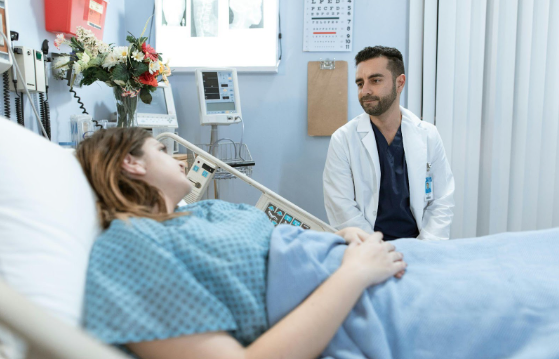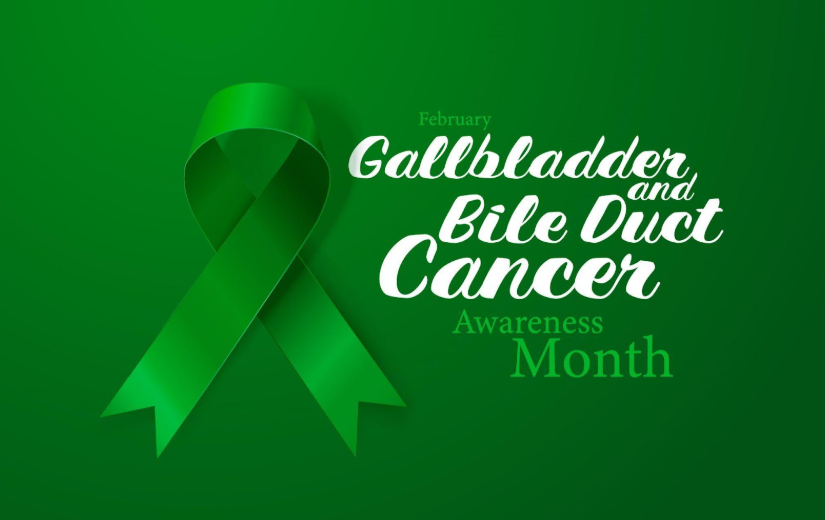Carcinogens and Your GI Tract: Here’s What You Should Know

Our digestive system, or gastrointestinal tract (GI), is a complex and vital network responsible for breaking down food, absorbing nutrients, and eliminating waste. However, this incredible machinery isn't immune to threats, including exposure to carcinogens. While the link between carcinogens and cancer is well-established, understanding how they specifically impact the GI tract can empower us to make informed choices for better gut health.
What Are Carcinogens?
Carcinogens are substances known for their ability to cause cancer. They fall into three main categories:
Chemical Carcinogens
These include both natural and man-made chemicals found in various sources. For instance, nitrites in processed meats, aflatoxins from moldy foods, and polycyclic aromatic hydrocarbons (PAHs) formed during high-temperature cooking are chemical carcinogens.
Physical Carcinogens
Ionizing radiation, a high-energy radiation, is a prime example of this type of carcinogen. It can potentially induce cancerous cell changes by directly impacting their genetic material. This category encompasses well-known sources, such as X-rays, commonly employed in medical diagnostics. Additionally, ultraviolet (UV) radiation from the sun, though a natural component of sunlight, is another notable physical carcinogen. Prolonged or intense exposure to ionizing radiation, including X-rays and UV radiation, can elevate the risk of developing cancer, emphasizing the importance of prudent measures and protective measures in various settings, including medical practices and sun exposure.
Biological Carcinogens
Living organisms, including certain viruses and bacteria, can serve as biological carcinogens, contributing to the promotion and development of cancer. Viruses such as human papillomavirus (HPV), hepatitis B and C viruses, and Epstein-Barr virus have been identified as potent carcinogens in humans. These viruses can integrate their genetic material into the host cells, disrupting normal cellular processes and potentially leading to uncontrolled cell growth, a hallmark of cancer.
Understanding the Impact of Carcinogens on the GI Tract
The GI tract, which is responsible for the digestion and absorption of nutrients, is particularly vulnerable to the harmful effects of carcinogens. This susceptibility arises from two key factors: the constant exposure of the GI tract to various substances and its high cell turnover rate.
Entry Points for Carcinogens
Let's explore how carcinogens enter the GI tract and their interactions with cells:
- Ingestion: Carcinogens can enter the GI tract through the consumption of contaminated food, water, or alcohol. Contaminated substances introduce harmful agents directly into the digestive system.
- Inhalation: Breathing in smoke or dust containing carcinogens allows these harmful substances to enter the GI tract. This is particularly relevant for individuals exposed to environmental pollutants or tobacco smoke.
- Skin Contact: Carcinogens can be absorbed through the skin, serving as an additional pathway for these harmful substances to reach the GI tract. Occupational exposure or contact with certain chemicals can contribute to this entry mode.
Interactions with Cells in the GI Tract
Once inside the GI tract, carcinogens can interact with cells in various ways, potentially leading to adverse health effects:
- Direct DNA Damage: Carcinogens may cause direct damage to the DNA within cells, leading to mutations. These mutations can disrupt the normal control mechanisms of cell growth, potentially resulting in uncontrolled cell growth, a hallmark of cancer.
- Inflammation: Chronic inflammation is another consequence of exposure to carcinogens. Prolonged inflammation creates an environment within the GI tract that is conducive to the development of cancer. It can promote cell proliferation and survival, further increasing the risk of malignancies.
- Altered Gut Microbiota: Carcinogens can disrupt the balance of the gut microbiota, the community of microorganisms in the digestive system. This imbalance weakens the gut barrier, making it more susceptible to the penetration of harmful substances and contributing to the overall risk of carcinogenesis.
Common Carcinogens and Their Impact on the GI Tract
Let's learn about specific examples of common carcinogens and their effects on the GI tract:
Processed Meats
Processed meats contain nitrites and nitrates, which can form carcinogenic compounds when processed in the gut. Long-term consumption of these compounds may contribute to an increased risk of GI cancer.
Red Meat
Cooking red meat at high temperatures can produce heterocyclic aromatic amines (HCAs), potentially linked to colorectal cancer. Proper cooking methods and moderation are essential considerations.
Alcohol
Excessive alcohol consumption is associated with an elevated risk of various GI cancers, including those affecting the esophagus and liver. Limiting alcohol intake is crucial for reducing this risk.
Tobacco Smoke
Tobacco smoke contains numerous carcinogens linked to various cancers, including those affecting the esophagus and stomach. Quitting smoking is a fundamental step in mitigating these risks.
Obesity
Excess weight and fat tissue contribute to chronic inflammation, posing a potential risk factor for GI cancers. Maintaining a healthy weight through proper diet and exercise is essential for reducing this risk.
Reducing Your Risk of Cancer
Here are a few ways in which you can reduce your risk of cancer:
Healthy Diet Choices
Adopting a balanced diet is foundational to reducing your risk of cancer. Prioritize a variety of fruits, vegetables, whole grains, and lean proteins in your meals. These nutrient-rich foods provide essential vitamins, minerals, and antioxidants that contribute to overall health. Additionally, limit your intake of processed meats, red meat, alcohol, and sugary drinks. By making mindful choices about your food, you support your body's resilience against potential carcinogens.
Mindful Cooking Methods
The way you prepare your food matters. Opt for gentler cooking methods such as baking, stewing, or poaching over high-temperature techniques like grilling or frying. Cooking at lower temperatures helps preserve the nutritional value of your food while minimizing the formation of potentially harmful substances. By adopting these cooking practices, you enhance your meals' flavor and promote a healthier digestive environment.
Sun Protection
Guarding your skin against excessive sun exposure is integral to reducing the risk of skin cancer. When outdoors, use sunscreen with a Sun Protection Factor (SPF) of 30 or higher. Applying sunscreen shields your skin from harmful ultraviolet (UV) rays, preventing damage that could lead to skin cancer. Combining sunscreen with other protective measures, such as wearing protective clothing and seeking shade, adds an extra layer of defense against the sun's harmful effects.
Maintain a Healthy Weight
Regular exercise and a balanced diet are key to achieving and maintaining a healthy weight. Engage in physical activity that suits your lifestyle, whether it's brisk walking, cycling, or other enjoyable forms of exercise. A healthy weight not only reduces the risk of cancer but also positively impacts overall well-being. By adopting a holistic approach that includes both regular exercise and mindful eating, you contribute to your body's ability to fend off potential health risks.
Vaccinations
Immunizations against Hepatitis B and Human Papillomavirus (HPV) are essential preventive measures. Hepatitis B vaccination can significantly decrease the risk of liver cancer, while HPV vaccination reduces the likelihood of cervical cancer. Discuss with your healthcare provider to determine the appropriate vaccination schedule based on your age, health status, and individual risk factors. By taking this proactive step, you empower your immune system to guard against specific cancer-related infections.
The Power of Early Detection
Early detection is your strongest weapon against gastrointestinal (GI) cancers. By identifying these cancers in their early stages, before they spread, you significantly increase your chances of successful treatment and enjoying a longer, healthier life. Here's how you can harness the power of early detection:
Age-Appropriate Screening Recommendations
Early detection begins with understanding age-appropriate screening recommendations and recognizing that different GI cancers may have distinct protocols. Here's a brief exploration:
- Colorectal Cancer: Screening usually starts around age 50 for average-risk individuals. However, those with heightened risk factors, such as a family history, inflammatory bowel disease, or specific genetic conditions, might initiate screening earlier. Options include colonoscopy, stool tests, and sigmoidoscopy.
- Stomach Cancer: While the US lacks a standard screening regimen, individuals with high-risk factors may benefit from upper endoscopy starting at age 45.
- Esophageal Cancer: Similar to stomach cancer, routine screening is important. High-risk individuals with conditions like Barrett's esophagus might necessitate regular upper endoscopy.
- Liver Cancer: Primarily recommended for individuals with chronic liver diseases like hepatitis B or C, screenings often involve ultrasounds and blood tests. Individual history and risk factors should guide personalized screening recommendations.
Early Warning Signs
Beyond screenings, awareness of early warning signs plays a pivotal role in early detection. Subtle symptoms should not be dismissed, especially as you age. Keep an eye out for:
- Unexplained diarrhea, constipation, or blood in stool.
- Ongoing indigestion, bloating, or pain unrelated to diet or medication.
- Unexplained weight loss or loss of appetite
- Difficulty swallowing
- Worsening heartburn
- Vomiting, especially of blood
- Fatigue and weakness
Regular Checkups and Open Communication
Regular checkups are essential for early detection, offering a proactive approach to health. These appointments allow healthcare providers to monitor overall health, discuss concerns, and recommend tailored screenings based on individual needs.
Open communication during checkups is paramount. Regardless of how minor the symptoms may seem, sharing them openly with your healthcare team can be pivotal for early detection. The synergy of regular checkups and transparent communication forms a strong defense against GI cancers, promoting a proactive and informed approach to healthcare.
Embark on your path to digestive wellness with
Northlake Gastroenterology! Our seasoned gastroenterologists offer specialized expertise, utilizing cutting-edge technology for precise diagnostics and advanced treatments. Experience a personalized approach to care tailored to your unique health needs.
Schedule your appointment now and connect with us to uncover a healthier tomorrow. We are your dedicated partner in digestive well-being.












